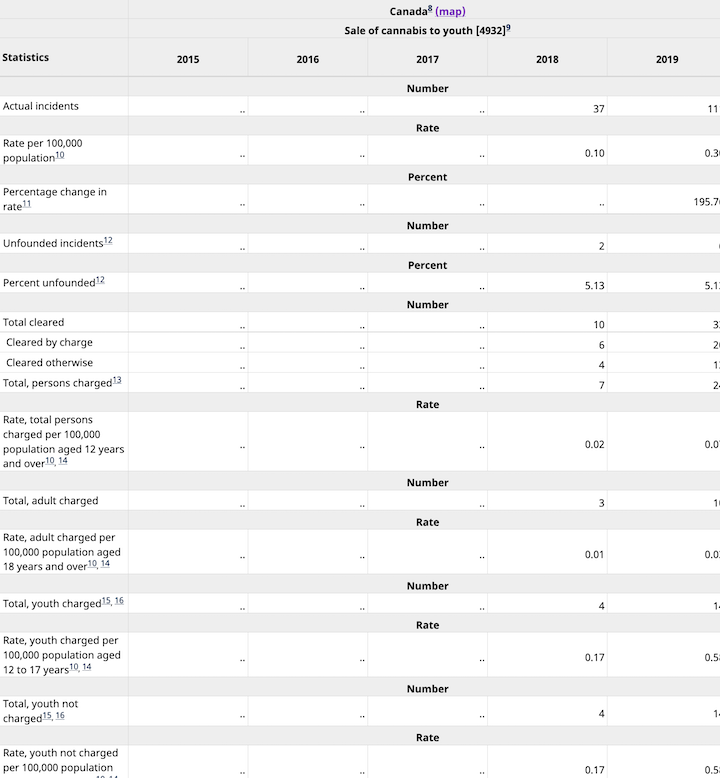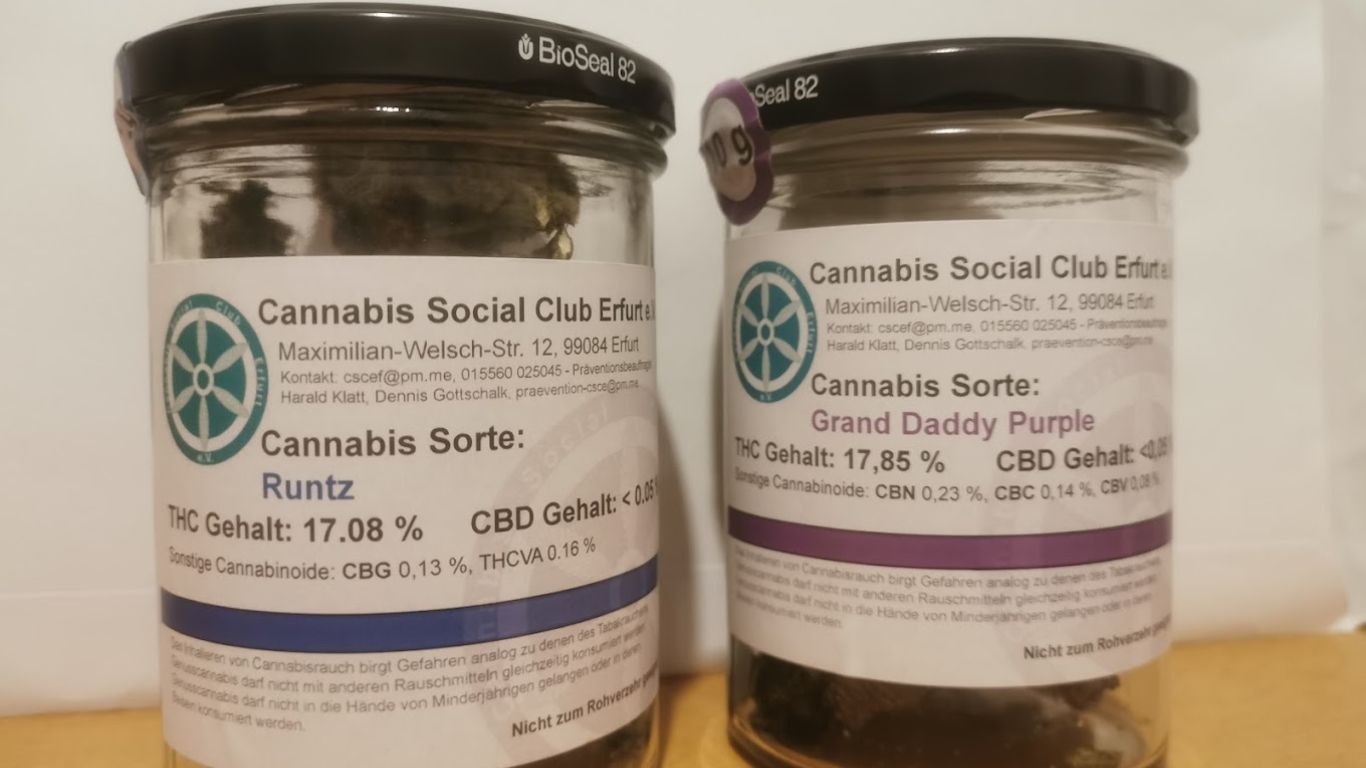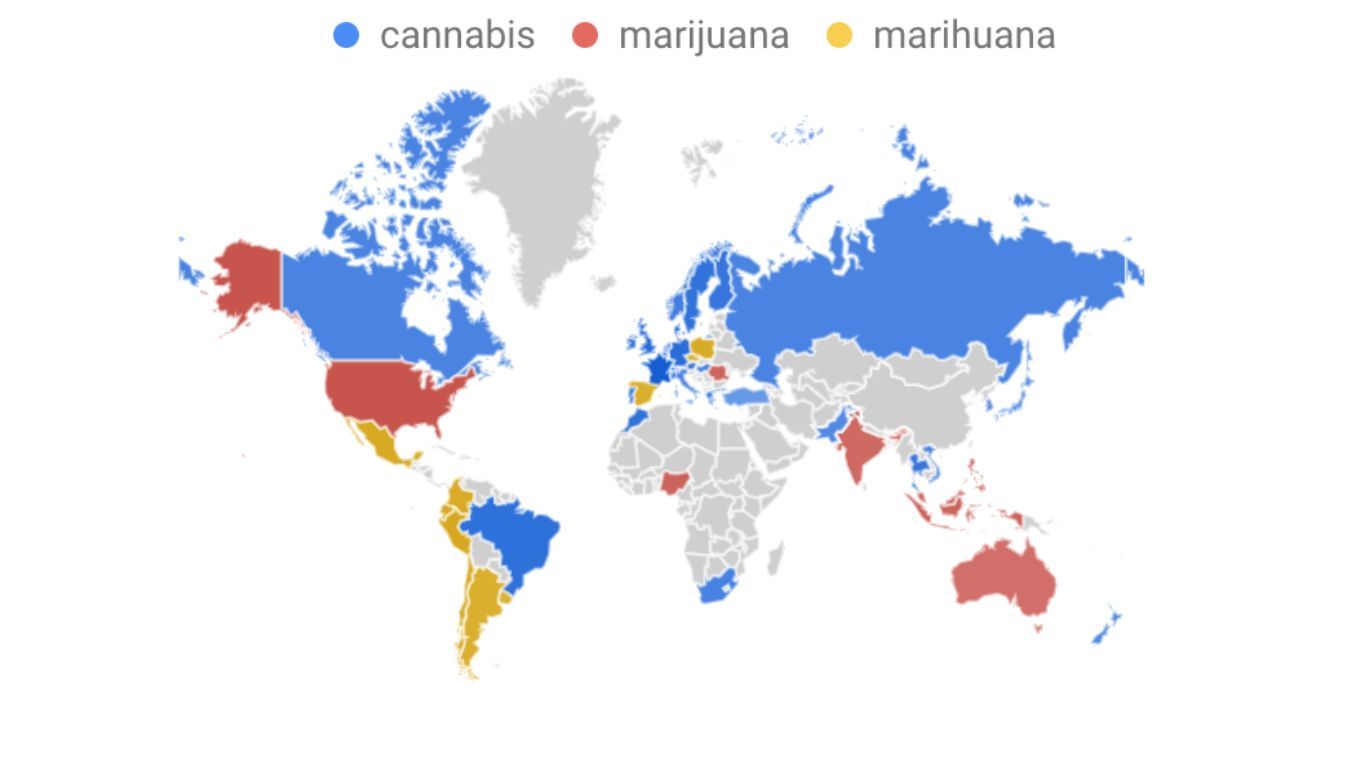
Information provided by Statistics Canada shows a significant decline in cannabis-related charges following legalization.
These declines are not a surprise, given the nature of legalization, but they illustrate how much of an impact legalization has had on law enforcement priorities. Canada legalized cannabis on October 17, 2018. Statistics Canada’s data shows arrest reports through 2019.
For cannabis possession charges, 2019 saw a 99% decrease from the year prior, with only 46 “actual incidents” reported. This represents a rate of .12 incidents per 100,000 people. The year prior, 2018, saw 26,402 actual incidents, a decrease from 2017’s 49,949. There were 44,919 such incidents in 2016 and 38,799 in 2015.
Although cannabis possession is now legal in Canada, charges can still be laid for an array of violations, including for individuals in possession of more than 30 grams in public or for possessing cannabis that was derived from the illicit market.
An “actual incident” is how police distinguish being a reported incident and a confirmed one. In addition, since investigations can sometimes take months or years, a reported actual incident may have charges that aren’t filed until a future fiscal year.
In addition to these possession charges, total cannabis trafficking, production or distribution charges have also declined. There were only 234 such incidents reported in 2019, compared to 8,668 in 2018; 10,968 in 2017; 10,738 in 2016; and 10,978 in 2015.
Separating those figures out, cannabis trafficking incidents alone represented 20 of those incidents in 2019 compared to 3,387 in the year prior. The other 214 incidents in 2019 were related to production and or distribution.
Actual incidents related to cannabis importation and exportation also declined significantly in 2019. There were 205 actual incidents reported in this first full year of legalization, compared to 3,710 the year prior. There were 2,734 such incidents in 2017, 1,818 in 2016 and 1,654 in 2015.
Actual incidents for cannabis production in 2019 were only 9, compared to 1,571 in the year prior. There were 2,294 such incidents in 2017, 3,000 in 2016, and 3,039 in 2015.
Following legalization, all cannabis-related legislation under the Controlled Drugs and Substances Act (CDSA) of Canada expired and was replaced with 22 new violation codes under the Cannabis Act. In 2018, there were 1,509 such incidents reported, and 16,588 in 2019. This has resulted in 3,377 charges laid under the Cannabis Act since legalization. 392 of these charges were against people under 18. Another 4,244 charges have been cleared and 583 youth involved in those actual incidents were not charged.
These charges can be for an array of violations, from impaired driving to trafficking, production, distribution, or more.
Total possession charges under the Cannabis Act in 2018 were 459 and 1,818 in 2019. In 2018 224 of those charges were cleared, while another 1,183 were cleared in 2019. Of these charges, 641 were adults and 204 involved youth under the age of 18.
Of those incidents of possession, 268 of them in 2018 were for amounts greater than 30 grams. The number for these incidents in 2019 was 968. The majority of these charges were cleared, with 130 cleared in 2018 and 92 charged, and 693 cleared in 2019 and 509 charged.
Incidents related to the possession of over five grams of cannabis by a young person under the age of access in their province were 679 in 2019 and 175 in 2018. Of those incidents in 2018, 89 were cleared and 59 were charged. In 2019, 426 were cleared and 149 were charged. Eleven of these charges across both years were for adults, while 197 were related to youth.
Canada’s cannabis rules do not allow possession of more than five grams of cannabis by someone under the age of 18. A young person found in possession of less than five grams can face non-criminal penalties.
There were also 20 incidents of distribution of cannabis to youth by an adult in 2018 and 105 in 2019. Of those incidents, 29 have so far been cleared and 27 charged.
The Cannabis Act also makes possession of up to four cannabis plants per household legal. In 2018 there were four incidents of possession of more than four of budding or flowering plants, or more than four cannabis plants. In 2019 there were 160 such incidents. Of these 174 incidents, 65 have so far been cleared and 34 charged. Thirty-three of those charges were for adults, and one charge was for a young person under the legal age.
Another 12 incidents occurred in 2018 and 2019 related to the distribution of budding or flowering plants, or more than four cannabis plants, nine in 2019 and three in 2018. Eight of those incidents have had charges cleared and six have seen charges laid, all adults.
There were two actual incidents of possession of cannabis by organizations in 2018 and 11 in 2019. Of these incidents, so far two have been cleared and two charged. Both charges involved adults. Under the Cannabis Act, an organization is defined as a public or corporate body, society, company, firm, partnership, trade union or municipality other than an individual.
These numbers will continue to be updated by Statistics Canada in the upcoming years.

















